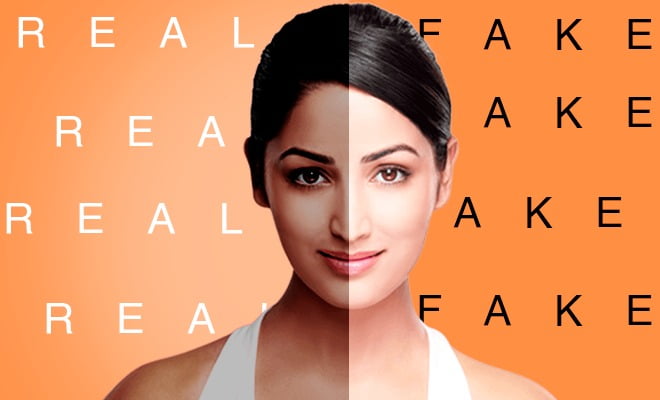The Indian Health Ministry has proposed to make punitive measures more stringent against advertisements that are misleading the citizens. The fairness cream ads that we see on our televisions, social media as well as in billboards are all targets of this new proposition. The Drugs and Magic Remedies (Objectionable Advertisements) (Amendment) Bill, 2020, aims to make misleading advertisements that promote fairness creams, obesity reduction pills, improve height etc., punishable by law. Although it is a need of the hour but is it enough to fight the internalised and casteist misogyny?
Perfect skin and body is something that Indians do not just strive for but also mark as criteria for acceptance. Be it the emphasis on ‘slim, fair brides’, or the demand for ‘tall grooms’ with a full head of hair, these are demands seen across various sections and sectors of our society: be it marriage or employment!
This struggle to be ‘accepted’, go to the extent of trying various fairness cream or weight loss products or even attempting intrusive and fatal surgeries. Sadly, insecurities created by the society capitalises on a huge business of fairness and beauty products. One of the major problems with this industry is not their products; instead, it is how they advertise it.
How do these ads become a problem?
Fairness products become a problem because they are projected in a way that is misleading and hence manipulative. Most of these ads breed on our insecurities of being dark, obese, or short. They relate all the good things in life with the attributes of being fair, tall and slim.
Fairness products become a problem because they are projected in a way that is misleading and hence manipulative. Most of these ads breed on our insecurities of being dark, obese, or short. They relate all the good things in life with the attributes of being fair, tall and slim.
Every achievement in life: getting a job, getting married or in general leading a good and happy life doesn’t come to you until you are perfect literally in the eyes of the society. Glorifying this insecurity on the television screen makes it sound like a ‘fact’. And then these companies come out with possible and “magical solutions” for these insecurities, most of which include chemical-infused products sold in the name of “Ayurvedic” products or products made of “natural extracts”.
Also read: Colourism In India: Dark Is Not A Dirty Word
People are then misled into buying these fairness cream products, thinking their skin will be brightened by safer ayurvedic ingredients. Instead, their skin is lightened by chemicals presented in a fancy bottle. Further, these ads simply promote the idea that success will come to you if you look a certain way. Hence, they perpetrate and perpetuate the misogyny and toxicity in society. I wonder, how these new amendments would tackle the historically essentialised misogyny from the damage that has been already done and fed into our minds.
What are some major changes?
Some of the major changes suggested by the draft of the amendment, titled, Drugs and Magic Remedies (Objectionable Advertisements)(Amendment) Bill, 2020 are as follows:
Women who are not “fair enough” or “slim enough” would still find ways to access these products, because the society would still expect them to appear a certain way.
- It expands the definition of ‘advertisement’ to include electronic media, website and internet ads.
- It suggests a punishment of imprisonment which may extend to two years and fine up to ten lakh rupees, for a first-time offence, and imprisonment which may extend to five years and fine up to fifty lakh rupees for repeat offenders.
- The schedule which specifies ‘diseases, disorders or conditions’ to which the law applies has been expanded to 78 from 54 to include conditions like AIDS, change in colour of hair and new hair, fairness of the skin, increase in brain capacity and improvement of memory, improvement in height of children/adults, and improvement in size and shape of the sexual organ and duration of sexual performance, among other things.
Just an Act is not enough
As much as this amendment is a progressive step, but it’s also a fact that stringent laws don’t make much of a difference if they are not followed through with properly monitored implementation. More efforts are needed to change the misogynistic and casteist mindsets.
Also read: Yami Gautam: The Fair Face Of A Dark Narrative
Women who are not “fair enough” or “slim enough” would still find ways to access these products, because the society would still expect them to appear a certain way. There are possibilities for black markets, where trade would become even more illegal, with very less information around the ingredients of the fairness cream products. That could also lead to harmful repercussions and hence, until the mindsets of people are actively transformed, these Acts and Amendments will do little good.
Note: The draft of the amendment is open to suggestions, comments and objections from the public as well as stakeholders for 45 days. You can do so by sending an email to drugsdivmohfw@gov.in, or via post to Under Secretary (Drugs Regulation), Ministry of Health and Family Welfare, Room No. 414A, D Wing, Nirman Bhawan, New D111elhi – 110011.
Featured Image Source: Penbugs




